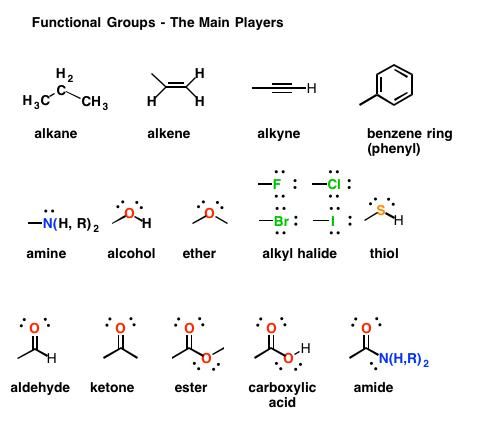Organic chemistry is a branch of chemistry that deals with the structure, properties, and reactions of organic compounds. These compounds are made up of carbon atoms bonded to hydrogen, oxygen, nitrogen, and other elements. Understanding the key concepts in organic chemistry is essential for anyone studying or working in the field of science and technology.
The Structure of Organic Compounds
The structure of organic compounds is based on the concept of carbon atoms bonding with other atoms to form molecules. Carbon has the unique ability to form single, double, and triple bonds with other atoms, which allows for the creation of complex structures. This bonding ability is what makes carbon the central element in organic chemistry.
Functional Groups
Functional groups are specific groups of atoms within a molecule that determine its chemical properties and reactions. Some common functional groups in organic chemistry include hydroxyl (-OH), carbonyl (C=O), and amino (-NH2). Understanding how these functional groups interact with each other is essential for predicting the behavior of organic compounds.
Chemical Reactions in Organic Chemistry
Chemical reactions in organic chemistry involve the breaking and formation of bonds between atoms. These reactions can be classified into different types, such as addition, elimination, substitution, and rearrangement reactions. Understanding the mechanisms of these reactions is crucial for designing new organic compounds and optimizing existing ones.
Stereochemistry
Stereochemistry is the study of the three-dimensional arrangement of atoms in molecules. In organic chemistry, stereochemistry plays a key role in determining the physical and chemical properties of a compound. Isomers, which are molecules with the same molecular formula but different arrangements of atoms, are a common example of the importance of stereochemistry in organic chemistry.
Organic Synthesis
Organic synthesis is the process of creating new organic compounds from simpler starting materials. This process involves a series of chemical reactions and techniques to build complex molecules with specific properties. Organic synthesis is a vital tool in drug discovery, materials science, and other areas of research and development.
Retrosynthetic Analysis
Retrosynthetic analysis is a powerful tool used in organic synthesis to plan the pathway for creating a target molecule. This process involves breaking down the target molecule into simpler starting materials and identifying the most efficient route for its synthesis. By applying retrosynthetic analysis, chemists can streamline the process of designing and synthesizing new organic compounds.
Applications of Organic Chemistry
Organic chemistry has a wide range of applications in various fields, including pharmaceuticals, agriculture, materials science, and environmental science. The development of new drugs, synthetic materials, and sustainable technologies relies on the fundamental principles of organic chemistry.
Drug Discovery
Organic chemistry plays a crucial role in drug discovery by designing and synthesizing new pharmaceutical compounds. Medicinal chemists use their knowledge of organic chemistry to develop drugs that target specific diseases and conditions, improving the quality of healthcare and patient outcomes.
Materials Science
Organic chemistry is essential in materials science for creating new polymers, composites, and other advanced materials. By manipulating the structure and properties of organic compounds, materials scientists can design materials with unique characteristics for a wide range of applications, from electronics to construction.
Conclusion
Organic chemistry is a fascinating and complex field of study that underpins many technological advancements in our modern world. By understanding the key concepts and principles of organic chemistry, scientists and engineers can push the boundaries of innovation and create solutions to some of the most pressing challenges facing society today.
Whether you are a student, researcher, or industry professional, mastering the essentials of organic chemistry is essential for success in the tech niche and beyond.
